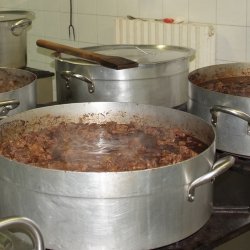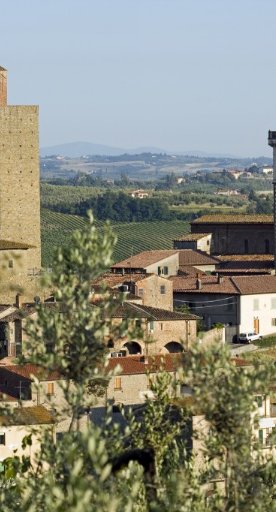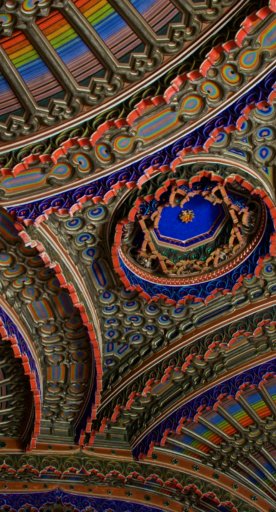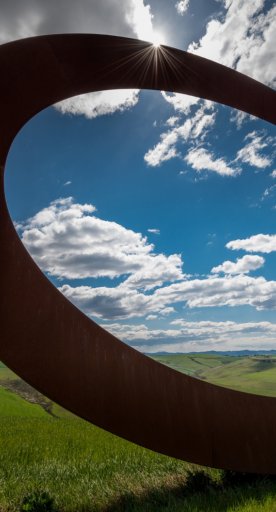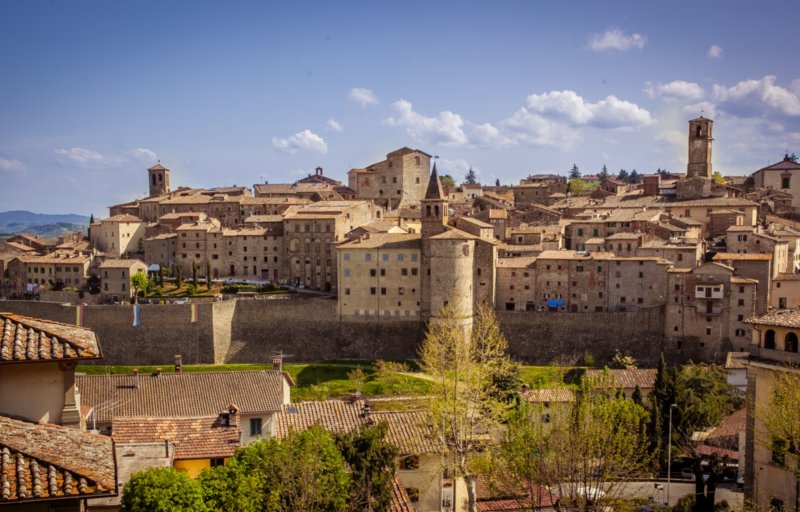Historical villas and gardens in Tuscany
Get ready to discover the many historical villas and gardens nestled in the tuscan landscape!
With this article, we would like to take you on a marvelous journey through history, art and nature. When talking about villas, what comes to mind is the list of the renowned Medici villas and gardens but there's more than these amazing UNESCO sites. Here is a list of villas, parks and gardens in Tuscany, big or small, well-known or almost unheard-of.
-
1.Boboli Gardens - Florence
-
2.Villa Bardini - Florence
-
3.Torrigiani Garden - Florence
-
4.Rose Garden - Florence
-
5.Botanical Garden - Florence
-
6.Medici Villa of Castello – Florence
-
7.Medici Villa La Petraia - Florence
-
8.Villa Gamberaia - Settignano (Florence area)
-
9.Medici Park of Pratolino, a.k.a. Villa Demidoff – Pratolino (Florence area)
-
10.Villa Peyron - Fiesole (Florence area)
-
11.Poggio Torselli – San Casciano in Val di Pesa (Florence area)
-
12.Medici Villa “Ambra” of Poggio a Caiano - Poggio a Caiano (Prato area)
-
13.Villa Garzoni - Collodi (Pistoia area)
-
14.Villa Puccini and Scornio park - Pistoia
-
15.Villa Reale - Capannori (Lucca area)
-
16.Villa Torrigiani - Capannori (Lucca area)
-
17.Villa Bernardini - Vicopelago (Lucca area)
-
18.Villa Grabau - San Pancrazio (Lucca area)
-
19.Villa Oliva - San Pancrazio (Lucca area)
-
20.Villa Mansi - Segromigno in Monte (Lucca area)
-
21.Villa La Pescigola - Fivizzano (Massa-Carrara area)
-
22.Villa La Foce - Chianciano Terme (Siena area)
-
23.Villa Cetinale - Sociville (Siena area)
Boboli Gardens - Florence

Boboli gardens are a wonderful open-air museum set just behind the Pitti Palace that were declared UNESCO World Heritage Site in 2013. Here, the Medici family created the model of the Italian-style garden, which became an example for many European courts. You'll run into a number of antique and Renaissance statues, caves and fountains.
Among the must-sees, make sure you check out the statue of Neptune by Stoldo Lorenzi, the ancient Egyptian obelisk, the large cypress avenue called Viottolone, and Isolotto square, with the great Ocean fountain by Giambologna at the center.
Info: uffizi.it
Villa Bardini - Florence

Located in the left bank of the Arno river in the neighbourhood of San Niccolo’, Villa Bardini and its garden will treat you to one of the most extraordinary views of Florence.
Dating back to the XVII century, the Villa usually hosts important temporary exhibitions and it is home to the Pietro Annigoni and the Roberto Capucci museums.
Info: bardinipeyron.it
Torrigiani Garden - Florence

Stretching for nearly seven acres in the historic center of Florence (on the left-bankside), Torrigiani garden is the largest private garden in Europe situated within city boundaries.
Everything here leads the visitor through a romantic and sentimental itinerary, from the gloomy "sacred wood" hiding the Sepolcreto to the wide open spaces that surround the temple of Arcadia, a symbol of ideal bucolic life.
Info: giardinotorrigiani.it
Rose Garden - Florence

The Rose Garden is a place of extraordinary beauty, with many types of roses (a collection of about 400 varieties) and other plants (a total of about 1,200), as well as a Japanese-style garden.
The park is located in the Oltrarno area, below Piazzale Michelangelo, and offers an amazing panoramic view of the city.
Info: servizi.comune.fi.it
Botanical Garden - Florence
Florence’s botanical garden is considered to be the third-oldest botanical garden in the world: the official founding date is December 1st 1545, when Cosimo I de’ Medici was in charge, but plants with medicinal properties were cultivated here since the Middle Ages. Nowadays it is part of the Natural History Museum of the University of Florence.
Must sees are the many rare plants, such as the Wollemia nobilis, and the impressive monumental trees.
Info: msn.unifi.it
Medici Villa of Castello – Florence
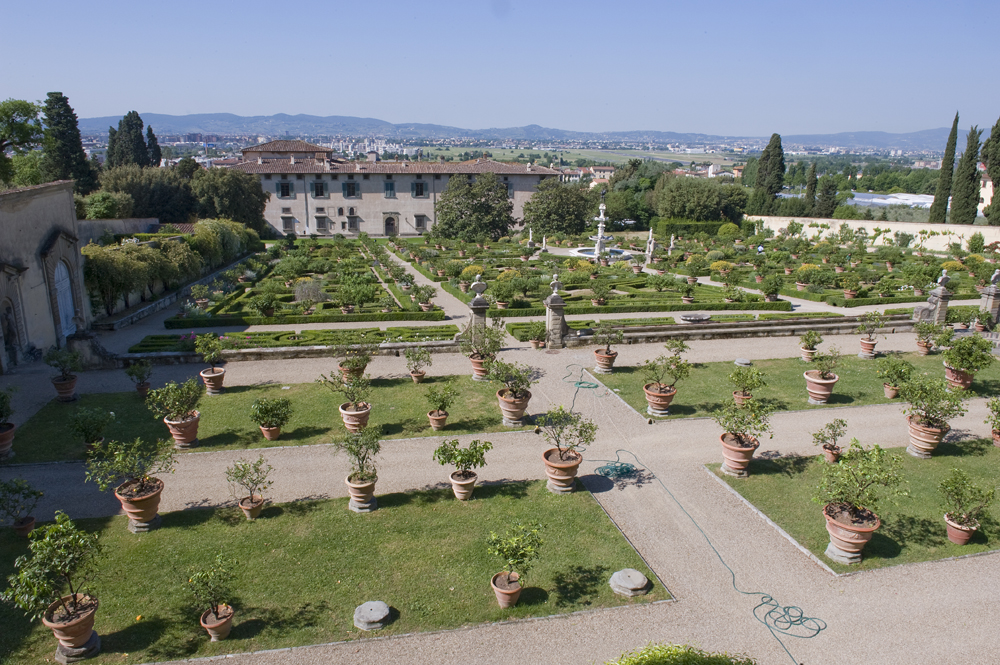
Purchased in 1477 from the "popular" branch of the Medici family, it was the favourite residence of Cosimo I, who had it restored by Tribolo in 1537. The garden is considered to be the first example of an Italian-style garden, with geometric flower beds, fountains, grottos and statues.
The Villa of Castello is part of the historical Medici properties that have been declared UNESCO World Heritage Site in 2013. Currently the villa is not open to the public, but the garden can be visited (free admission).
Medici Villa La Petraia - Florence

Rebuilt by Ferdinando I de' Medici at the end of the sixteenth century, it belonged then to the Lorraine family. King Vittorio Emanuele II lived here when Florence was the capital of Italy (around 1865) and the current decoration of the villa dates back largely to this period.
The Medici Villa La Petraia was also granted UNESCO World Heritage Site status in 2013. Inside the structure you'll find paintings, frescoes, furnishings, tapestries, statues and musical instruments. The courtyard is decorated with frescoes by Cosimo Daddi and Volterrano. The statue of the Venus-Fiorenza by Giambologna came from a fountain in the Villa di Castello. During your visit don't miss the Italian garden at the front and the romantic park on the back.
Villa Gamberaia - Settignano (Florence area)

The Villa is nestled in the hills around Settignano, surrounded by the peace of a rural paradise from which you can enjoy an exceptional view of Florence. Walking in the beautiful Italian gardens, considered the attraction of the villa for centuries, visitors feel immersed in the heart of Tuscany.
Info: villagamberaia.com
Medici Park of Pratolino, a.k.a. Villa Demidoff – Pratolino (Florence area)

The estate of Pratolino was purchased in 1568 by Grand Duke Francesco I de’ Medici, who commissioned Buontalenti the task of turning it into a villa. Almost abandoned in the following centuries, the villa was then demolished and the park renovated as an English-style garden by the Demidoff family, that bought the complex in 1872.
Nowadays, the garden is vast and beautiful, featuring artificial grottoes and fountains. Furthermore, we can still enjoy the colossal statue by Giambologna dedicated to the Apennine mountains, the statue of Mugnone and a hexagonal chapel designed by Buontalenti, all part of the original structure.
Admission is free, and you also should know that it was declared UNESCO World Heritage Site in 2013.
Info: firenzeturismo.it
Villa Peyron - Fiesole (Florence area)

The entire complex of Villa Peyron at the Fontelucente Forest, including the garden, the big park, the woods and the olive groves, is in a beautiful location with a spectacular view of Florence.
Info: bardinipeyron.it
Poggio Torselli – San Casciano in Val di Pesa (Florence area)

The villa is one of the largest and most elegant homes in San Casciano, near Florence: it was once called the "queen of the villas". Over the centuries the owners of the villa have been the most prestigious Tuscan families: Machiavelli, Corsini, Strozzi, Antinori, Capponi and Orlandini.
The "garden of seasons" offers incredible colours throughout the year, thanks to the presence of many different flowers and lemon trees. Reservation is required.
Info: poggiotorselli.it
Medici Villa “Ambra” of Poggio a Caiano - Poggio a Caiano (Prato area)

If you love the Medici villas of Tuscany you just can’t miss this one, which represents the architectural masterpiece of Giuliano da Sangallo. The villa (also in the list of UNESCO World Heritage Sites since 2013) was built between 1445 and 1520 for Lorenzo de’ Medici and his heirs, and is one of the first examples of Renaissance architecture: the lesson of the classics together with the elegant Tuscan rural architecture.
In September, the Renaissance atmosphere returns to animate the villa with a historical reenactment "Siege of the Villa". Free admission.
Villa Garzoni - Collodi (Pistoia area)

The impressive façade of Villa Garzoni stands on the slope of a hill and it almost covers the village of Collodi, which can be entered through the archway of the building.
The historic Garzoni garden is a work of art and it’s one of the most beautiful gardens in Italy, a perfect synthesis between Renaissance geometry and the Baroque spectacular natural elements. Expect grottoes statues of mythological beings, satyrs, female figures, greenhouses with peacocks and bamboo forests.
Info: pinocchio.it
Villa Puccini and Scornio park - Pistoia
The Villone Puccini park is located just outside the medieval town of Pistoia. This romantic park was designed by Luigi de Cambray Digny in the beginning of the XIX century and still cherishes many of its original attractions: the Gothic temple, the Gothic castle with a monument dedicated to Francesco Ferrucci, and the pantheon.
The park is open to the public, while the villa can be visited upon request.
Info: discoverpistoia.it
Villa Reale - Capannori (Lucca area)

Over the centuries, the villa has been an important residence for noble families and great patrons of the arts.
Princess Elisa Baiocchi, Napoleon's sister, lived here in the early years of the Nineteenth century, contributing to the extension of this huge complex.
Info: parcovillareale.it
Villa Torrigiani - Capannori (Lucca area)

The Villa and the park date back to 1500 and belonged to the Buonvisi family. In 1636 the Marquis Nicolao Santini, Ambassador of the Republic of Lucca at the court of Luigi XIV, bought the villa and turned it into a small palace inspired by the Castle of Versailles, with a garden of flowered parterres and huge pools in which the façade could reflect.
The house is still inhabited by the descendants of the Marquis.
Villa Bernardini - Vicopelago (Lucca area)

In 1615 the Ambassador Bernardino Bernardini had the villa built to accommodate his family and his guests. The villa stands in the middle of a large park, with lush trees and over 350 different species of flowers, reflecting the desire for hospitality.
Among the must sees, make sure you pay a visit to the so-called secret garden, created in the early XVIII century as a place of rest and conversation for the the ladies.
Info: villabernardini.it
Villa Grabau - San Pancrazio (Lucca area)

Villa Grabau preserves in its structure the harmony and simplicity of the forms that characterize the architecture of the Renaissance villas of Lucca. The arrangement of the garden, an architectural gem, was achieved by dividing the space of the park with a terrace, decorated with mosaics in black and white.
In the Italian garden section there are over 100 centenarians citrus plants, still in their original terracotta basins.
Info: villagrabau.it
Villa Oliva - San Pancrazio (Lucca area)

Villa Oliva is one of the greatest achievements of mannerist architecture in Lucca. It sits on a slight slope, in a balanced game of perspectives and volumes, lights and shades, nestled in the landscape of the hills.
The villa is surrounded by a large park, completely fenced, which extends for about five hectares.
Info: villaoliva.it
Villa Mansi - Segromigno in Monte (Lucca area)

The Benedetti family were the first owners of this villa, dating back to the XVI century, famous for the grace of its gardens and the elegance of its architectural lines.
The elegant and refined structure of the villa appears in the background of the garden beyond the woods.
Villa La Pescigola - Fivizzano (Massa-Carrara area)

Villa La Pescigola and its huge garden represent an amazing example of an eighteenth-century villa: a beautiful, mysterious and romantic villa set in a panoramic position, with an impressive horseshoe-shaped structure.
In spring visitors are welcomed by a waving sea of more than 200.000 daffodils (we’re talking about 400 different varieties and colours) and tulips.
Info: villapescigola.com
Villa La Foce - Chianciano Terme (Siena area)

Villa La Foce is a twentieth century villa overlooking the enchanting Val d'Orcia, with the Monte Amiata in the background. The house is surrounded by an Italian garden divided into geometrical 'rooms', with lemon trees in terracotta pots, travertine stairs leading to the rose garden and a pergola covered with wisteria and bordered by lavender.
Terraced slopes rise gently up the hill, where cherry trees, pines and cypresses grow among wild broom, thyme and rosemary, and a long avenue of cypresses leads to a stone statue of the seventeenth century.
Info: lafoce.com
Villa Cetinale - Sociville (Siena area)
The grand villa Cetinale, a well-preserved late-seventeenth-century building designed by Carlo Fontana, a pupil of Bernini, is also interesting for the vast eighteenth-century park and the formal garden that surrounds the villa, inspired by the Renaissance tradition.
Info: villacetinale.com


